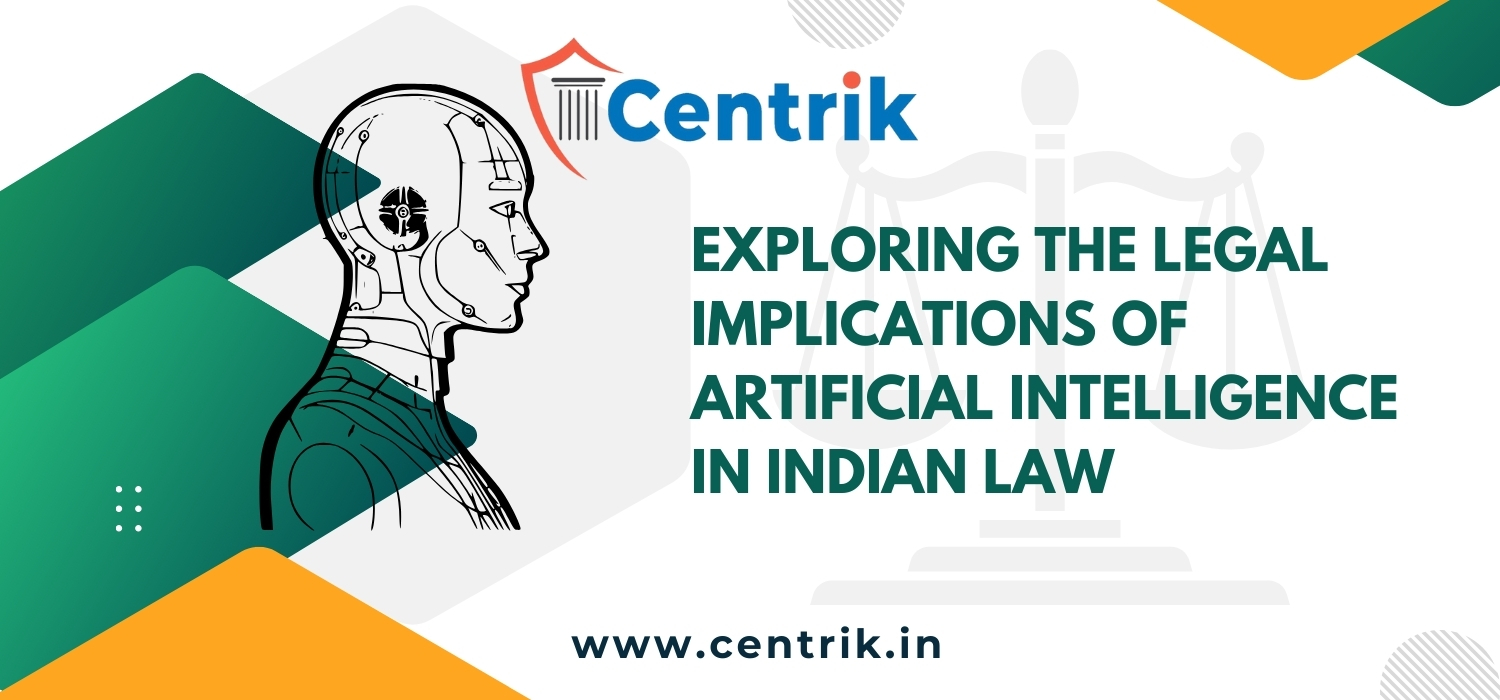Introduction:
Artificial intelligence (AI) is transforming a number of sectors, including healthcare and finance, by providing previously unheard-of chances for efficiency and creativity. However, the growing use of AI also brings with it difficult and complicated legal issues. The distinct legal ramifications of artificial intelligence (AI) in Indian law are discussed in this article, which also examines important topics like responsibility, liability, and regulation in the context of AI technologies.
AI and Liability:
One of the central legal issues surrounding AI is determining liability in cases where AI systems cause harm or damage. Unlike traditional products or services, AI systems can operate autonomously and make decisions without human intervention, complicating the attribution of responsibility.
Under Indian law, liability for AI-related harm may arise under various legal theories, including negligence, strict liability, and vicarious liability. Courts may hold developers, manufacturers, or users of AI systems liable for damages resulting from defects, errors, or misuse of AI technology. However, establishing liability in AI cases requires considering factors such as the level of human involvement, foreseeability of harm, and the standard of care expected from AI system operators.
Accountability and Transparency:
Ensuring accountability and transparency in AI systems is essential for fostering trust and addressing concerns about bias, discrimination, and unfair decision-making. Indian law may require AI developers and users to disclose information about the design, training data, and decision-making processes of AI systems to enable scrutiny and accountability.
Regulatory Framework:
India currently lacks comprehensive legislation specifically addressing AI technologies. However, existing laws and regulations may apply to certain aspects of AI, such as data protection, intellectual property rights, and consumer protection.
Personal Data Protection Bill, 2019: seeks to regulate the processing and transfer of personal data, including data collected and used by AI systems. The bill includes provisions for data minimization, purpose limitation, and informed consent, which are relevant to AI applications involving personal data.
The Indian government has also launched a number of organizations and projects to support AI research, development, and moral application. For instance, the National Strategy for Artificial Intelligence addresses the ethical, legal, and sociological ramifications of AI research and innovation while seeking to establish India as a global leader in the field.
As AI technologies continue to evolve, there is a pressing need for India to develop a comprehensive regulatory framework tailored to the unique challenges and opportunities presented by AI. Such a framework should balance innovation with safeguards for fundamental rights, ethical principles, and public interest.
Conclusion:
The legal ramifications of artificial intelligence under Indian law provide intricate issues that need thoughtful analysis and prompt regulatory actions. India can make use of AI’s disruptive potential and make sure that its application complies with fairness, justice, and human rights standards by tackling concerns of liability, accountability, and transparency.





 join For Updates
join For Updates